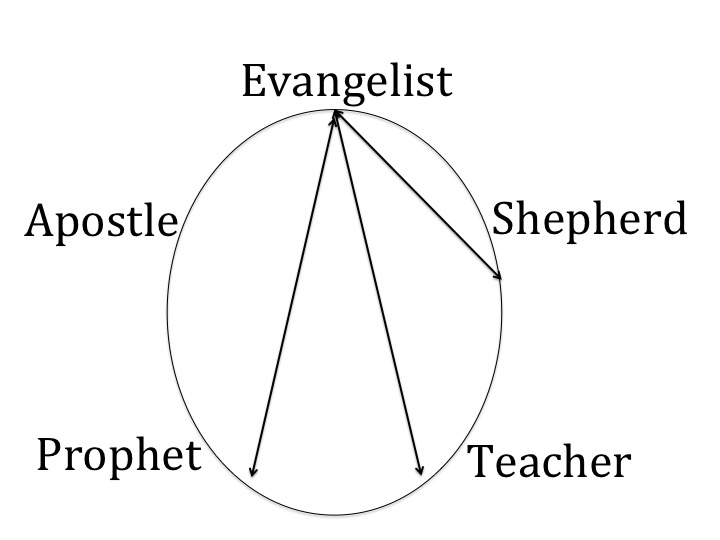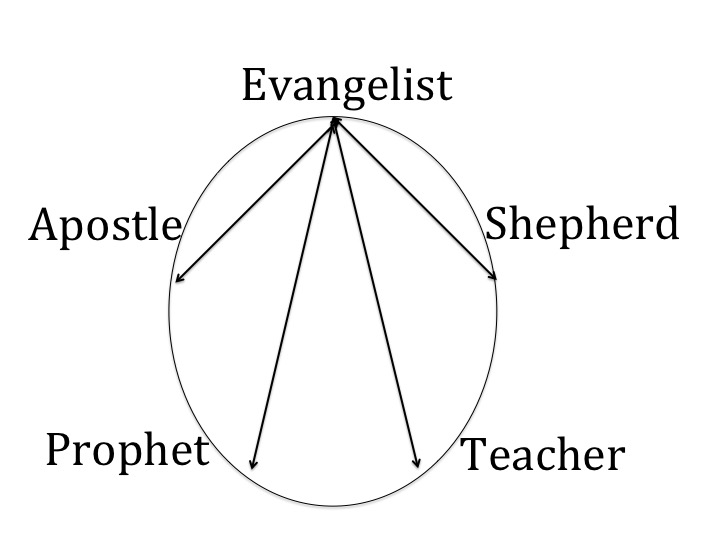 Why Should/Shouldn’t My Church Embrace Change? Part XXVI
Why Should/Shouldn’t My Church Embrace Change? Part XXVI
Let’s examine how the evangelist can relate to the shepherd, teacher, prophet, and apostle to bring maturity to individual Christian growth and unity to the Body of Christ. Strong relationships are reciprocal, so lets see what the evangelist can give to the others and receive from them and why they need each other.
 Evangelist/Shepherd: An evangelist’s strength is in birthing. His passion is for the lost to find their way into the kingdom of God. Nurturing and caring for new converts is his weakness because his passion drives him toward winning the lost. Every evangelist needs a shepherd beside him whose strength is to nurture, guide, care, and “parent” these new converts in their faith journey. Since the sheep may get sick, wonder off, or even die, it is mandatory for the shepherd to be available 24/7 for his sheep. Personally, an evangelist needs a shepherd to speak advice into their own personal life to temper their zeal. The shepherd, on the other hand, needs the evangelist’s zeal to motivate his own life.
Evangelist/Shepherd: An evangelist’s strength is in birthing. His passion is for the lost to find their way into the kingdom of God. Nurturing and caring for new converts is his weakness because his passion drives him toward winning the lost. Every evangelist needs a shepherd beside him whose strength is to nurture, guide, care, and “parent” these new converts in their faith journey. Since the sheep may get sick, wonder off, or even die, it is mandatory for the shepherd to be available 24/7 for his sheep. Personally, an evangelist needs a shepherd to speak advice into their own personal life to temper their zeal. The shepherd, on the other hand, needs the evangelist’s zeal to motivate his own life.
 Evangelist/Teacher: An evangelist needs a teacher to ground his personal ministry in the Logos Word, the Bible. If it isn’t scriptural, it’s questionable. Also the teacher can make the Logos Word real by making it a Rhema living Word, applicable to everyday life, not just theological. This is to prevent new believers from becoming Pharisees, followers of institutionalized, structural, lifeless religion. Jesus was severely critical of Pharisees. A teacher needs an evangelist to keep his faith fresh, active, and alive. An evangelist needs a teacher to walk with him through his daily faith journey. Their passions are necessary to keep a believer in Jesus a living organism.
Evangelist/Teacher: An evangelist needs a teacher to ground his personal ministry in the Logos Word, the Bible. If it isn’t scriptural, it’s questionable. Also the teacher can make the Logos Word real by making it a Rhema living Word, applicable to everyday life, not just theological. This is to prevent new believers from becoming Pharisees, followers of institutionalized, structural, lifeless religion. Jesus was severely critical of Pharisees. A teacher needs an evangelist to keep his faith fresh, active, and alive. An evangelist needs a teacher to walk with him through his daily faith journey. Their passions are necessary to keep a believer in Jesus a living organism.
 Evangelist/Prophet: To prevent legalism, the evangelist needs a prophet whose passion is to draw near to God. Rather than relying on programs and events, the evangelist needs to rely on the Holy Spirit to produce creative, relevant ways to share the gospel to win the lost. Personal prophecy can be an effective evangelistic tool as Jesus demonstrated with the Samaritan woman at the well. Words of wisdom and knowledge can be beneficial to winning the lost. Since the evangelist majors in birthing, who better to work with than a prophet who majors in the spiritual. Prophetic evangelism could revolutionize the way the Church does ministry.
Evangelist/Prophet: To prevent legalism, the evangelist needs a prophet whose passion is to draw near to God. Rather than relying on programs and events, the evangelist needs to rely on the Holy Spirit to produce creative, relevant ways to share the gospel to win the lost. Personal prophecy can be an effective evangelistic tool as Jesus demonstrated with the Samaritan woman at the well. Words of wisdom and knowledge can be beneficial to winning the lost. Since the evangelist majors in birthing, who better to work with than a prophet who majors in the spiritual. Prophetic evangelism could revolutionize the way the Church does ministry.
 Evangelist/Apostle: An evangelist has a narrow view of seeing only a lost and dying world that need Jesus. An apostle sees the big picture, the Church as a whole. The apostle sees birthing as only the beginning of a process towards maturity in Jesus, so he directs new converts to the right brothers or sisters to be nurtured, cared, taught, and spiritually guided. An apostle needs an evangelist to birth vision and projects the group as a whole will develop.
Evangelist/Apostle: An evangelist has a narrow view of seeing only a lost and dying world that need Jesus. An apostle sees the big picture, the Church as a whole. The apostle sees birthing as only the beginning of a process towards maturity in Jesus, so he directs new converts to the right brothers or sisters to be nurtured, cared, taught, and spiritually guided. An apostle needs an evangelist to birth vision and projects the group as a whole will develop.